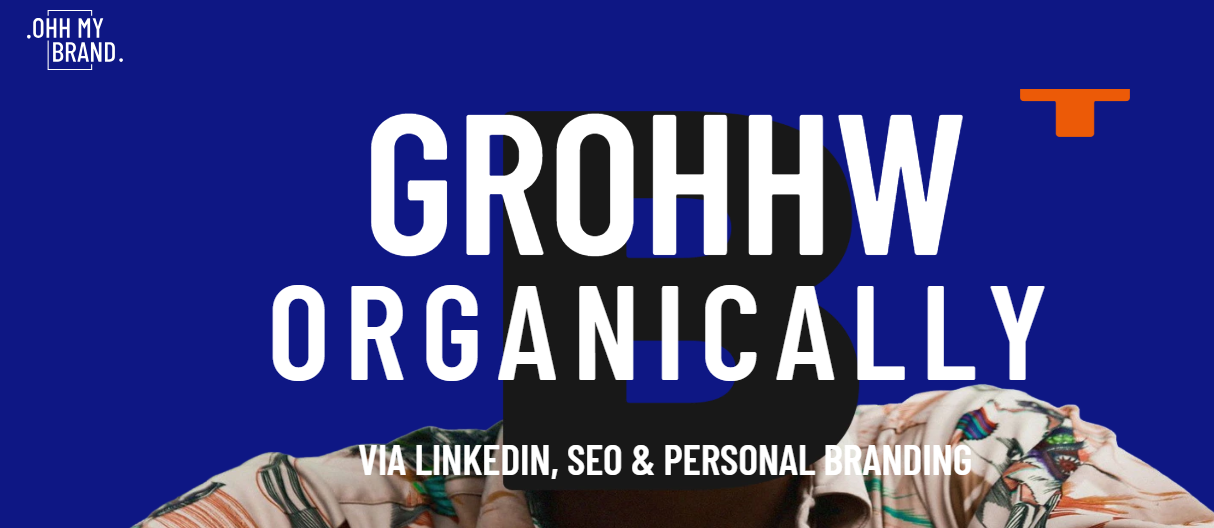Have you ever wondered what makes certain individuals stand out effortlessly in their professional circles? The answer often lies in personal branding. In today’s competitive market, it’s not enough to simply be good at what you do. Personal branding tips offer the tools to shape how others perceive your value, showcasing your expertise in a way that leaves a lasting impression.
For professionals, entrepreneurs, and freelancers, building a strong personal brand is about creating a unique identity that sets you apart. This blog dives into actionable strategies that will help you develop a memorable personal brand to elevate your presence in 2024.
What makes personal branding so impactful? It’s not just about visibility; it’s about measurable success. Statistics reveal that 74% of consumers trust individuals with an established personal brand, and 63% are more likely to engage with or buy from them. For professionals, this translates into better job offers, career growth, and business opportunities.
Furthermore, personal branding enhances engagement rates. Content shared by individuals garners 8 times more interaction than that shared by brands, positioning you as a thought leader and strengthening your influence. When your audience sees consistency in your expertise and values, their trust in your capabilities grows exponentially.
By following proven personal branding strategies, you create a direct path to professional advancement. Whether it’s through building credibility, growing your network, or increasing your visibility, the results can be transformative—making your professional success up to 10 times more achievable.

Building a personal brand that resonates with your audience requires intentional effort and proven strategies. Below are 11 detailed tips, each paired with a practical scenario to help you implement them effectively.
Your brand identity is the foundation of all personal branding efforts. Begin by identifying your core strengths, values, and unique qualities. Reflect on what you want people to associate with your name. Are you an innovative problem-solver, a creative thinker, or an expert in a specific niche? Clarifying these attributes will help shape the image you project.
To make your brand authentic, align your identity with your personal and professional goals. Use tools like personality tests or feedback from peers to better understand how others perceive you. The stronger your self-awareness, the easier it becomes to develop a consistent and relatable personal brand.
Scenario:
Maria, a marketing consultant, realized her strength lies in data-driven strategies. She branded herself as a “Marketing Analyst Who Merges Creativity with Data.” By aligning her projects, social media content, and messaging with this identity, Maria attracted clients seeking analytical yet creative solutions.
Results:
Clients began to recognize her expertise in providing actionable insights, leading to higher-quality projects and referrals.
A strong personal brand speaks directly to a specific audience. Knowing who you want to reach will allow you to craft a message that resonates. Start by asking: Who will benefit most from what I offer? For example, entrepreneurs might focus on investors, while freelancers might target potential clients.
Once you identify your audience, research their preferences and pain points. Use social media analytics or surveys to understand their behaviors and interests. This ensures that your messaging, tone, and content are relevant and engaging, building a deeper connection with your audience.
Scenario:
John, a freelance graphic designer, initially targeted all businesses but found his best responses came from tech startups. He refined his focus, using portfolio examples, social media posts, and blogs that addressed tech startups’ design needs.
Results:
By narrowing his target audience, John became a go-to designer for startups, leading to steady, high-paying work.

Your brand statement is your professional elevator pitch. It should succinctly describe who you are, what you do, and the value you bring. For example: “I help small businesses grow through innovative marketing strategies that deliver measurable results.”
A clear and memorable brand statement serves as the guiding principle for all your branding efforts. Use it consistently on your website, LinkedIn profile, and social media bios to reinforce your professional identity.
Scenario:
Emma, a career coach, crafted the statement, “I help mid-level professionals land their dream jobs with tailored resumes and interview coaching.” She displayed this prominently on her LinkedIn and website.
Results:
Prospective clients immediately understood her value, resulting in a 40% increase in inquiries within a few months.
In today’s interconnected world, your online presence is often the first impression you make. Start with a personal website that highlights your achievements, portfolio, and brand statement. This serves as your digital business card and a central hub for all your branding efforts.
Additionally, ensure your social media profiles are aligned with your personal brand. Use professional profile pictures, compelling bios, and consistent messaging across platforms like LinkedIn, Twitter, and Instagram. Regularly update your profiles with relevant information to maintain credibility and engagement.
Scenario:
Ryan, an aspiring fitness coach, created a website featuring client testimonials, transformation photos, and blog posts about fitness tips. He also linked his Instagram account, where he shared workout videos.
Results:
His website and social media consistency helped him secure partnerships with fitness brands and build a loyal client base.
Social media platforms are powerful tools for personal branding. Instead of trying to be active everywhere, focus on platforms where your audience is most active. For instance, LinkedIn is ideal for professionals, while Instagram works well for visual creators.
Use your social media accounts to share valuable content, engage with followers, and showcase your expertise. Participate in discussions, join industry-specific groups, and interact with other thought leaders to expand your network. Remember, consistency in posting and tone will strengthen your brand image over time.
Scenario:
Priya, a software developer, used LinkedIn to share case studies, technical tips, and thought-provoking posts about industry trends. She joined discussions in tech groups and responded to others’ content.
Results:
Her visibility grew within the tech community, leading to a speaking opportunity at a developers’ conference.

Content creation is a cornerstone of personal branding. By sharing your knowledge and insights, you position yourself as an authority in your field. Start with formats that suit your strengths, such as blog posts, videos, podcasts, or infographics.
For example, if you’re a copywriter, write articles about effective writing techniques or share tips on LinkedIn. Use content to address your audience’s challenges and offer practical solutions. This not only builds trust but also increases your visibility in the industry.
Scenario:
Alex, a financial advisor, started a blog about personal finance tips and created short videos for Instagram and YouTube. One of his articles on saving strategies went viral.
Results:
The increased exposure attracted hundreds of inquiries, and he converted several into paying clients.
Personal branding isn’t done in isolation. Networking allows you to connect with professionals in your industry, share ideas, and explore collaboration opportunities. Attend industry events, participate in webinars, or join online communities to expand your reach.
Scenario:
Linda, a photographer, attended a local art exhibit and connected with other creatives. She later collaborated with a painter to create a joint exhibition combining photography and art.
Results:
The collaboration brought Linda significant media attention and expanded her client base.
Your personal brand isn’t static. As your career evolves, so should your brand. Regularly seek feedback from peers, mentors, or clients to understand how your brand is perceived. Use their insights to identify areas for improvement and refine your strategy.
Scenario:
Nina, a public speaker, surveyed her audience after every event. Feedback revealed that attendees wanted more actionable advice. Nina adjusted her presentations to include step-by-step solutions.
Results:
Her audience engagement increased, and she became a preferred speaker for corporate events.
Consistency is the key to building trust and recognition. Your personal brand should reflect the same values, tone, and messaging across all platforms and interactions. Whether it’s your social media posts, emails, or public speaking engagements, ensure they align with your overall brand identity.
Create a content calendar to schedule your posts and maintain a consistent publishing rhythm. Consistency helps your audience remember and trust you, reinforcing your personal brand.
Scenario:
David, a tech entrepreneur, ensured his branding across his LinkedIn profile, email signature, and investor presentations followed the same professional tone and design.
Results:
His consistent image instilled confidence in potential investors, resulting in a successful funding round.

What others say about you online matters. Regularly monitor your digital footprint to ensure that your brand image remains positive. Set up Google Alerts for your name to track mentions and respond promptly to any issues that arise.
If negative feedback surfaces, address it professionally and constructively. A strong response shows accountability and helps maintain trust with your audience. Your online reputation is an extension of your personal brand, so managing it effectively is essential.
Scenario:
Sophia, a travel blogger, found a negative review on a forum regarding one of her tours. She quickly addressed the concern with a detailed response and offered a free consultation to resolve the issue.
Results:
Her professionalism turned a critic into a loyal follower, and her audience appreciated her transparency.
To stay relevant and competitive, always seek opportunities to enhance your skills and knowledge. Attend workshops, enroll in online courses, or read industry-related books to stay updated on trends and best practices.
Sharing what you learn with your audience can also strengthen your brand. For instance, writing a blog post about your takeaways from a recent conference shows your dedication to growth and expertise in your field.
Scenario:
Chris, a digital marketer, attended a course on AI-driven marketing techniques and shared his insights through LinkedIn posts. His posts attracted attention from businesses looking to modernize their strategies.
Results:
Chris landed consulting contracts with three new clients eager to adopt cutting-edge solutions.
By combining these actionable tips with real-world application, you can build a personal brand that not only reflects your expertise but also opens doors to remarkable opportunities. Remember, the effort you put into crafting your personal brand will directly impact the recognition and trust you earn in your professional sphere.

In today’s competitive professional environment, establishing a compelling personal brand is essential for standing out and achieving success. Ohh My Brand, founded by Bhavik Sarkhedi, specializes in crafting personalized branding strategies that highlight your unique strengths and resonate with your target audience.
Ohh My Brand understands that each individual has distinct qualities and aspirations. They offer tailored strategies that align with your personal and professional goals, ensuring your brand authentically represents who you are. By focusing on your unique value proposition, they help you connect more effectively with your audience.
Leveraging Bhavik Sarkhedi’s expertise as a best-selling author and storyteller, Ohh My Brand emphasizes the power of authentic narratives. They assist in crafting compelling stories that reflect your journey, values, and vision, making your personal brand relatable and memorable.
Integrating advanced AI-driven analytics, Ohh My Brand provides precise recommendations on audience engagement, content optimization, and online presence enhancement. This data-driven approach ensures your personal branding efforts are both effective and efficient.
Ohh My Brand offers a wide spectrum of services, including:
Catering to a global clientele, Ohh My Brand serves executives, thought leaders, and entrepreneurs across various industries. Their solutions are designed to resonate across diverse cultures, ensuring your personal brand has a broad and impactful reach.
With Bhavik Sarkhedi’s legacy of innovation and success in content creation and digital strategy, Ohh My Brand builds on a strong foundation of expertise. Their commitment to authenticity and innovation positions them as a leader in the personal branding domain.
By partnering with Ohh My Brand, you gain access to a team dedicated to elevating your personal brand, helping you achieve your professional goals, and making a lasting impact in your industry.

Building a personal brand in 2024 is more important than ever for professionals, entrepreneurs, and freelancers looking to stand out in their industries. A well-crafted personal brand does more than enhance your visibility—it establishes trust, credibility, and influence. By implementing the strategies outlined in this blog, from defining your brand identity to maintaining consistency and seeking feedback, you create a unique presence that resonates with your audience and opens doors to countless opportunities.
Partnering with experts like Ohh My Brand can accelerate this journey by providing tailored guidance, strategic storytelling, and tools that ensure your personal brand is not only impactful but also memorable. By investing time and effort into personal branding, you position yourself for success, creating a professional image that truly represents your values, skills, and aspirations.
Start building your personal brand today and watch as it transforms the way the world perceives and engages with you.
Personal branding is essential because it helps individuals stand out in competitive industries, build trust with their target audience, and establish themselves as thought leaders. Strong personal branding strategies can also lead to partnerships, career advancements, and business growth.
To effectively define your personal brand, start by understanding who your audience is and what they need. Research their challenges, preferences, and values. Use tools like social media analytics, surveys, and feedback to align your personal branding techniques with their expectations.
The best platforms for personal branding depend on your industry and target audience. LinkedIn is ideal for professionals, while Instagram and YouTube are excellent for creatives. To maximize your personal branding efforts, focus on platforms where your audience is most active and ensure consistency across all channels.
Ohh My Brand specializes in personal branding strategies that include authentic storytelling, online presence optimization, and tailored content development. Their expertise in personal branding services ensures your unique value proposition resonates with your audience and elevates your professional image.
Key components of successful personal branding include a clear brand identity, a concise and compelling brand statement, consistency across platforms, and engaging content. Regularly updating your personal brand and maintaining a positive online reputation also play a vital role.
It’s important to assess and refine your personal brand every 6-12 months to ensure alignment with your professional goals and industry trends. Regular updates help maintain your credibility and keep your personal brand relevant to your audience.